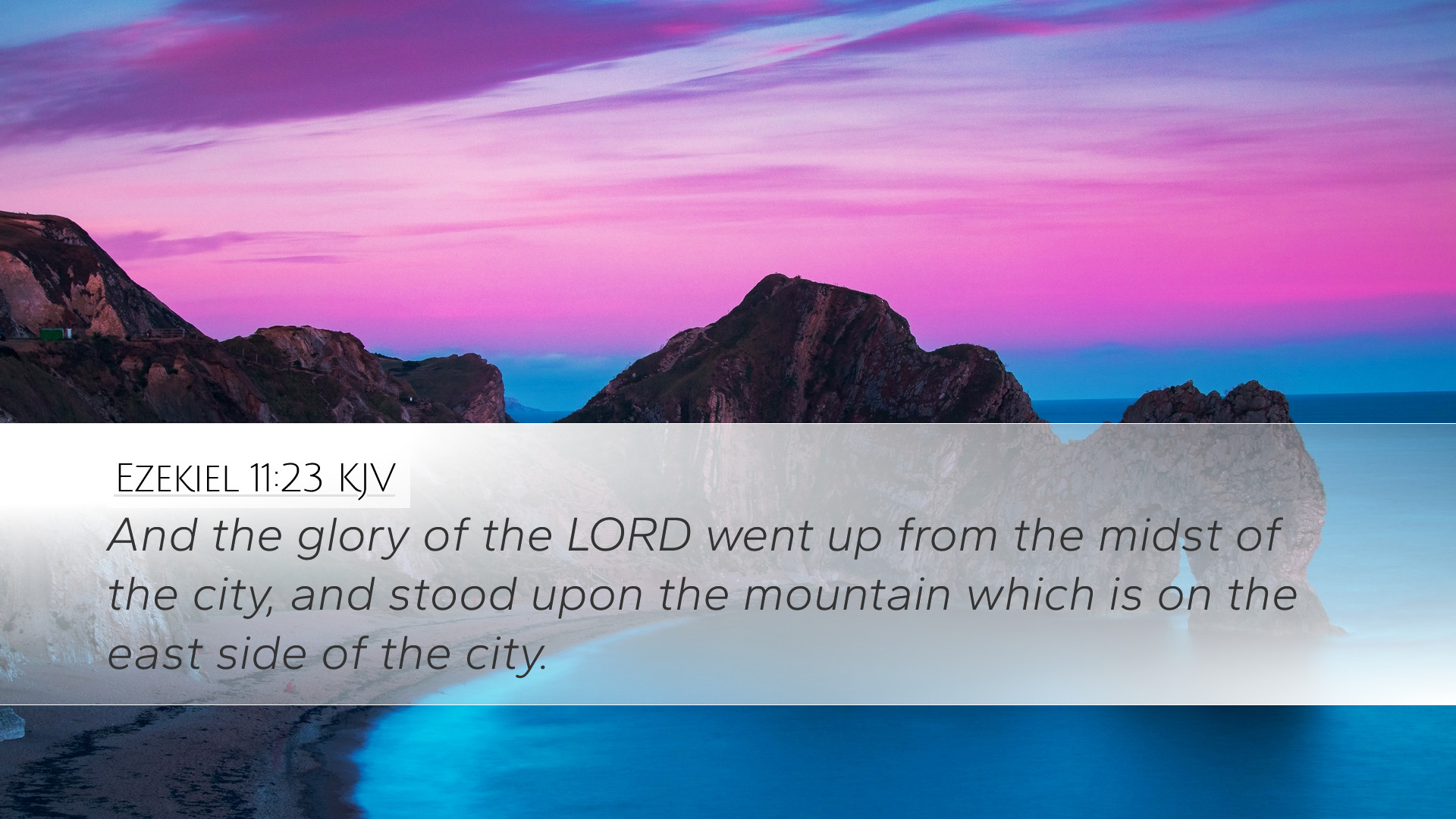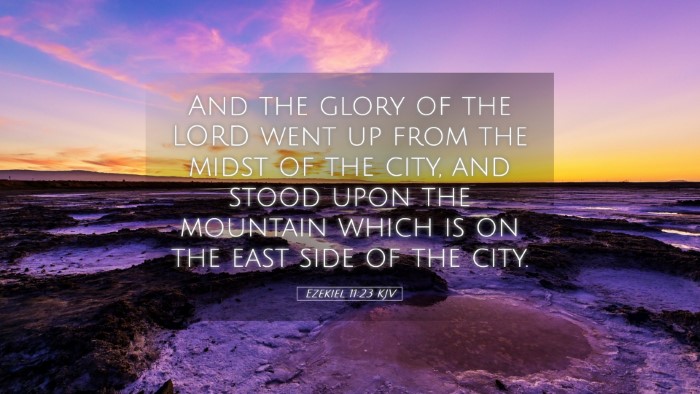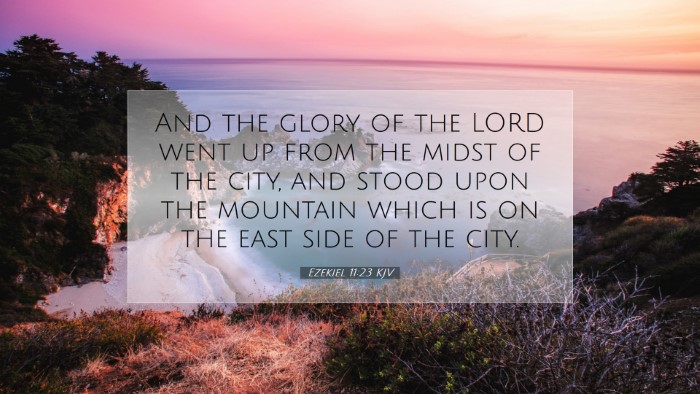Bible Commentary on Ezekiel 11:23
Bible Verse: "And the glory of the LORD went up from the midst of the city, and stood upon the mountain which is on the east side of the city."
Introduction
In examining Ezekiel 11:23, we delve into a pivotal moment in the prophetic ministry of Ezekiel. This verse encapsulates the departure of God’s glory from Jerusalem, signaling a profound shift in the relationship between God and His covenant people. Commentaries from notable theologians like Matthew Henry, Albert Barnes, and Adam Clarke provide a rich tapestry of insights that help illuminate the theological and practical implications of this passage.
Contextual Overview
The Book of Ezekiel is set against the backdrop of the Babylonian exile, where the prophet speaks to a people stripped of their land, their temple, and seemingly their God. Ezekiel stands as a mouthpiece for divine judgment but also for hope and restoration. The events surrounding Ezekiel 11 highlight the culmination of Israel's rebellion and the resulting consequences.
Examination of Ezekiel 11:23
The Glory of the LORD
Matthew Henry emphasizes that the "glory of the LORD" represents His presence, majesty, and divine sovereignty. In this verse, God's glory departing from the city reflects His displeasure and the withdrawal of protection from His people. This departure is not a mere physical relocation but signifies a deeper spiritual abandonment, echoing the themes of sin and judgment prevalent throughout the prophetic scriptures.
From the Midst of the City
Albert Barnes notes that God's presence in Jerusalem had been a source of strength and identity for the Israelites. By stating that the glory ascends from the midst of the city, the gravity of this removal is profound—the very center of their worship and national identity is now forsaken. The symbolic act of elevation also indicates the transition from judgment to eventual restoration, as it foreshadows the rebuilding of the temple and reestablishment of God’s covenantal relationship with a remnant.
The Significance of the Mountain
The reference to the glory of the LORD standing upon "the mountain which is on the east side of the city" is laden with meaning. Adam Clarke suggests that this mountain is likely the Mount of Olives, known for its prophetic significance in Jewish eschatology. This geographic setting not only marks a physical departure but also serves as an eschatological promise—a symbol of hope that God will not abandon His people forever. The mountain signifies a place from which God will ultimately return, reinforcing the theme of restoration that permeates the prophets.
Theological Implications
The departure of God's glory raises critical theological questions that resonate deeply with pastors, theologians, and scholars. Firstly, it prompts reflection on the nature of God’s presence among His people and the seriousness of sin that can lead to divine judgment. The glory of the LORD represents not just a beneficent presence, but a holy and just God who cannot overlook transgressions.
- Divine Judgment: The withdrawal of God's glory is a stark representation of divine judgment. God’s holiness necessitates judgment against sin, and Ezekiel’s prophecy serves as a warning against complacency in faith.
- Hope of Restoration: Despite the heavy themes of judgment, Ezekiel also carries the promise of restoration. The verse implicitly indicates that even as God departs, there is hope for His return and the revival of His presence among His people.
- The Role of the Remnant: The idea of a remnant becomes crucial as we interpret the significance of this passage. God’s glory departing does not mean total abandonment, as He preserves a faithful remnant through which future restoration can occur.
Practical Applications
In light of Ezekiel 11:23, several practical lessons emerge for believers today:
- Awareness of God’s Presence: Just as the people of Israel experienced the physical departure of God’s presence, modern believers are called to reflect on the active presence of God in their lives. Ritualism without righteousness can lead to a similar departure.
- Holiness and Repentance: This passage serves as a clarion call for holiness. Churches and individuals must heed the warnings against complacency and strive to live in obedience to God’s commands to maintain a vibrant relationship with Him.
- Anticipation of Renewal: For believers, knowing that God's glory once departed but will return in fullness encourages a spirit of hope. The promise of renewal and restoration must govern the church's mission and message.
Conclusion
Ezekiel 11:23 is a powerful reminder of the consequences of turning away from God and an invitation to remain steadfast in faithfulness. The insights from public domain commentaries underscore the richness of this verse, providing layers of meaning that speak to God’s holiness, justice, mercy, and the overarching narrative of redemption. This passage, while steeped in historical and prophetic significance, resonates with timeless truths that challenge every generation to seek after God’s presence earnestly.


